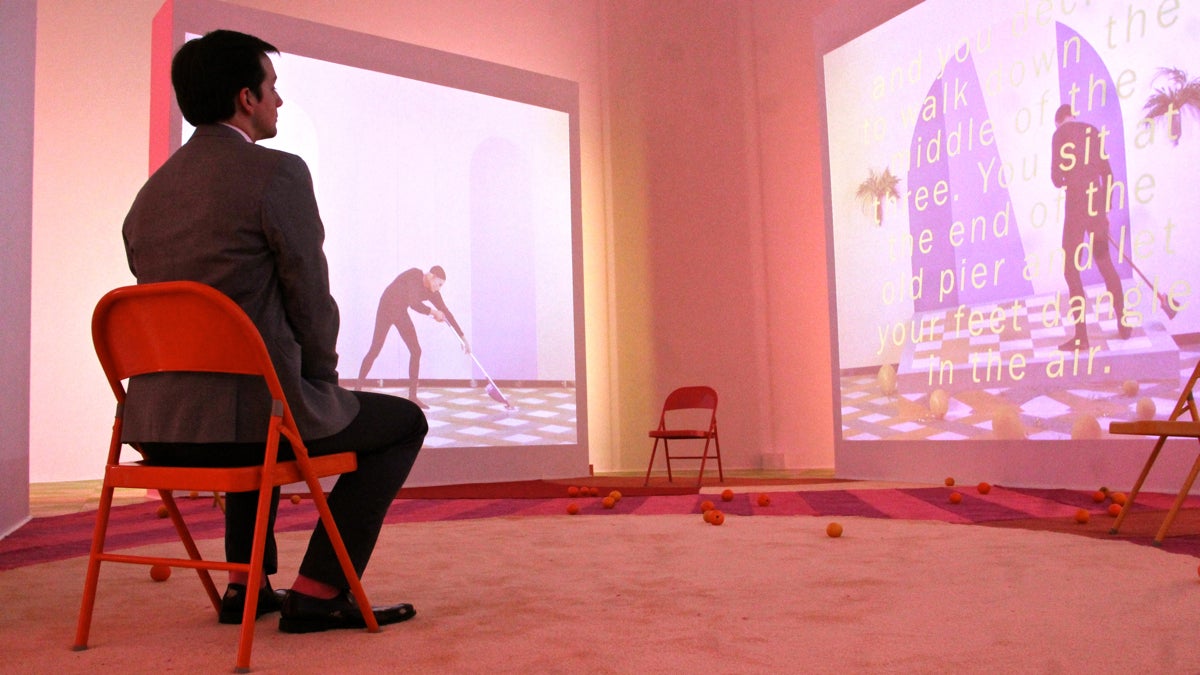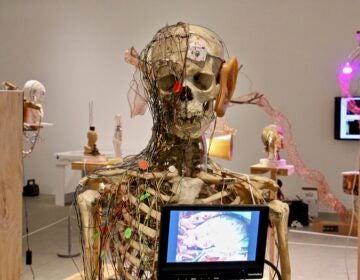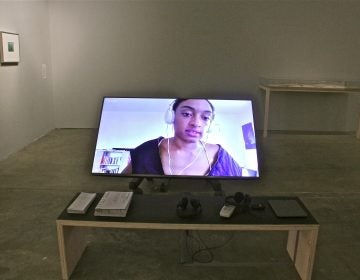Find more to appreciate in art with ‘Extra Credit’ Sunday school – Sundays, June 10 – July 29, 2018
Ever look at a painting and think, "I could do that"? Learn to grasp the nuances of contemporary art with one of these classes.

The video installation Easternsports by Alex Da Corte and Jayson Musson plays on four big screens at the Institute for Contemporary Art. (WHYY)
I have a confession to make: I love art, but I was not a great student of art history. I just couldn’t get excited about the Renaissance masters, and it took so long to get to the contemporary art that really interested me. Not that I always understood what I was looking at in that arena either. Contemporary art spans such a range of disciplines, mediums, and styles — and it changes so quickly — it can be hard for the uninformed enthusiast to make sense of it all.
That’s why the Institute of Contemporary Art is bringing back its ”Extra Credit” program, a free series of classes on understanding and appreciating contemporary art. Every Sunday, starting this week and running until July 29, curators, artists, and scholars will be speaking on everything from land art to video installations.
“I get excited about what a series like this does, just to ask larger questions that kind of break the molds or break the understandings of our traditional conception of art history,” says Amanda Sroka, assistant curator of contemporary art at the Philadelphia Museum of Art. “What that means, what certain mediums mean, what it means to be an artist today, what it means to make art in and about our times.”
Sroka will kick off “Extra Credit” this weekend with a 101 course called “Defining Contemporary in the Shifting Landscape of Our Time.” In it, she’ll introduce students to landmark exhibitions that changed how the art world understood contemporary art and art practice,including the 1993 Whitney Biennial, one of the more controversial exhibitions in American art history.
“Art history comes from a very particular western idea of what art is and has been over time,” says Sroka. “What’s exciting about contemporary art has been about shifting that understanding and also shifting where we’re looking back to for that history. I think that also makes it more accessible to folks, that it’s not just about art history but about other histories and practices that we’re learning about and incorporating into these conversations.”
Future sessions include Daniel Tucker lecturing on how artists use and create archives; Sharon Hayes on performance in contemporary art; and Imani Roach on the myth of “global art.”
This article is part of a new effort recommending things to do in the Philly region. Tell us what you think.
WHYY is your source for fact-based, in-depth journalism and information. As a nonprofit organization, we rely on financial support from readers like you. Please give today.





